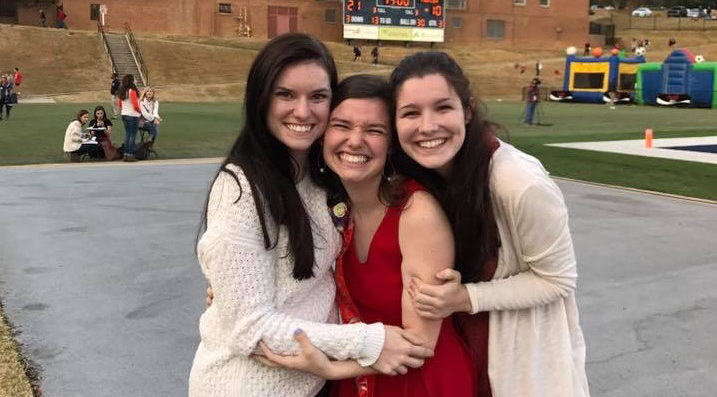When entering Buchanan Hall at Samford University, the soft notes of the piano and the voices of chattering students fill the air. Sometimes, the voice of a singing student enters into this chorus, creating a place not typical to other realms of academia on campus.
As other Samford students are studying economics or trying to pass their nursing validations, music majors could not seem further removed from the more traditional majors on campus. However, being a music major is far from easy despite what stereotypes seem to suggest.
According to information gathered from Statista, music majors in the United States on average studied 17 ½ hours a week which is a higher average than traditional majors such as accounting, biology and marketing.
Dr. Jovanni-Rey de Pedro, assistant professor of piano and piano pedagogy, demands a lot from his students.
“I require freshmen to get at least two or three hours of practice in a day,” de Pedro said.
With 10 to 15 hours of outside practice per week, piano and piano pedagogy students must also balance a rigorous academic schedule and their other classwork.
Caleb Phillips, a junior music pre-med major, discussed how he struggles with time management.
“You have two to four hours a day of (piano) practice plus whatever rehearsals you may have and then (your) class load and homework as well.”
However, de Pedro’s practice requirement exists not to make his students’ lives harder, but to push them to succeed.
“This is your major (and) you need to spend the most time with it,” de Pedro tells his students. “You need to make this your livelihood.”
Yet, the challenging course load and practice requirements are just the beginning for these students. All music majors in the 21st-century encounter challenges that musicians before them could not imagine.
“It is not enough anymore to just be able to perform well,” Morgan Kline ,a piano pedagogy master’s student at Samford University said.
Her degree, piano pedagogy, focuses on how to teach piano to others alongside the standard piano performance degree. Kline said that in order to be successful in her career path, one must be the whole package: marketable, intelligent and skillful as music teachers often are self-employed.
De Pedro also expressed the idea that music students needed to be more than performers.
“You need to be a good business person, you need to be a public figure, you need to be a researcher, a scholar, and play well,” he said.
The many skills a modern music major acquires is invaluable to any career path. Phillips, who hopes to pursue a career in pediatrics, discusses how music has enriched his academic career.
“(Music) provides another side to you so you’re not just invested in one single thing like medicine,” Phillips said. “You have these other aspects to your life which create a more whole individual and that can aid in how you approach medicine.”
Though the music students are here at Samford University to obtain an academic degree and become successful professionals, passion is the basis of why students go through four grueling years or more in music.
Kline has a favorite quote to summarize how she has persevered with a career in music. “In music and in a lot of things in life, the discipline that you have in that area, give your passion for it a purpose,” Kline said.
While Samford University’s music majors have chosen a non-traditional major and career path, they push themselves to succeed and strive for excellence, becoming the next generation of performers to bring their passion and hard work to center stage.
Elizabeth Pridgeon, Contributing Writer



